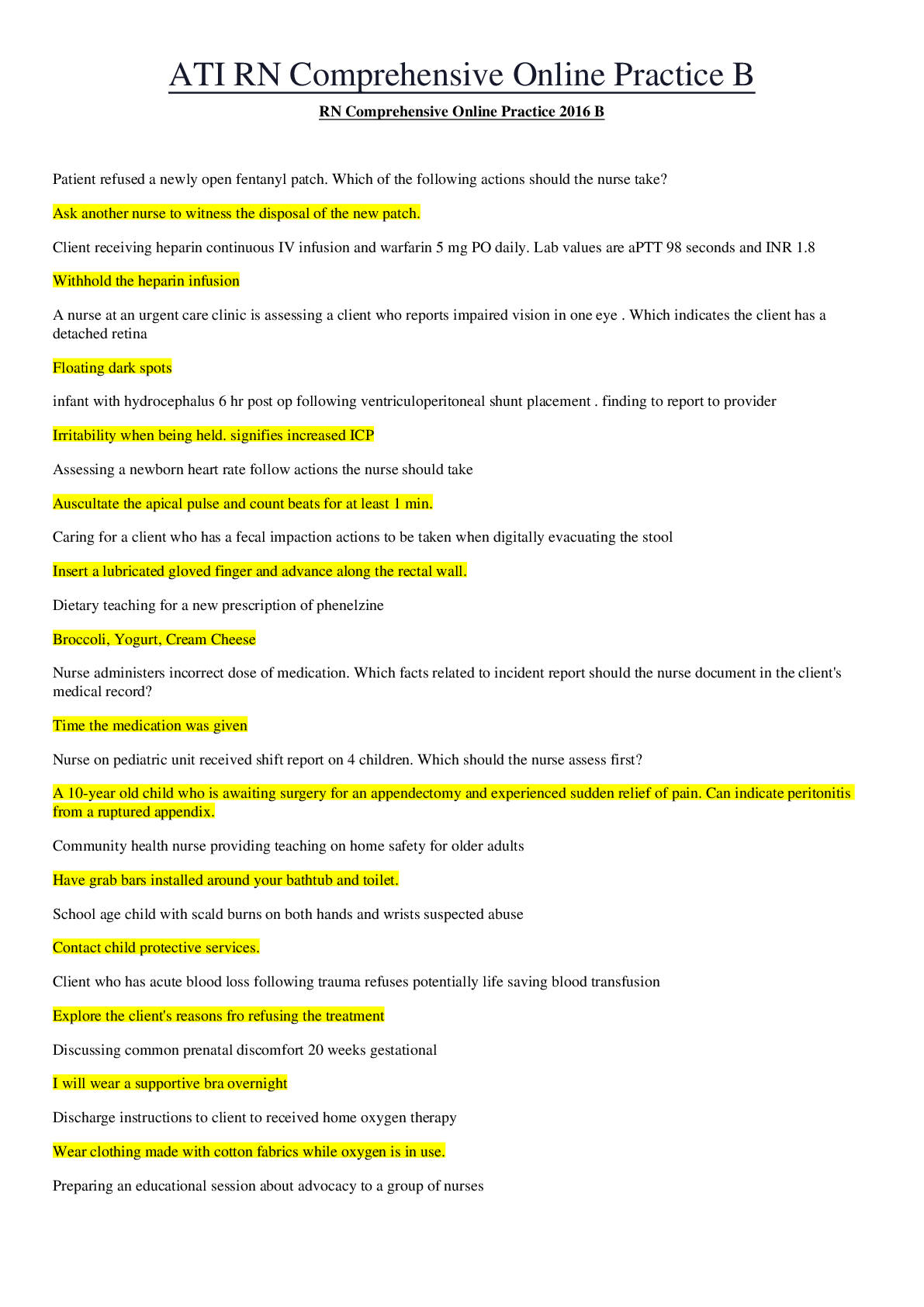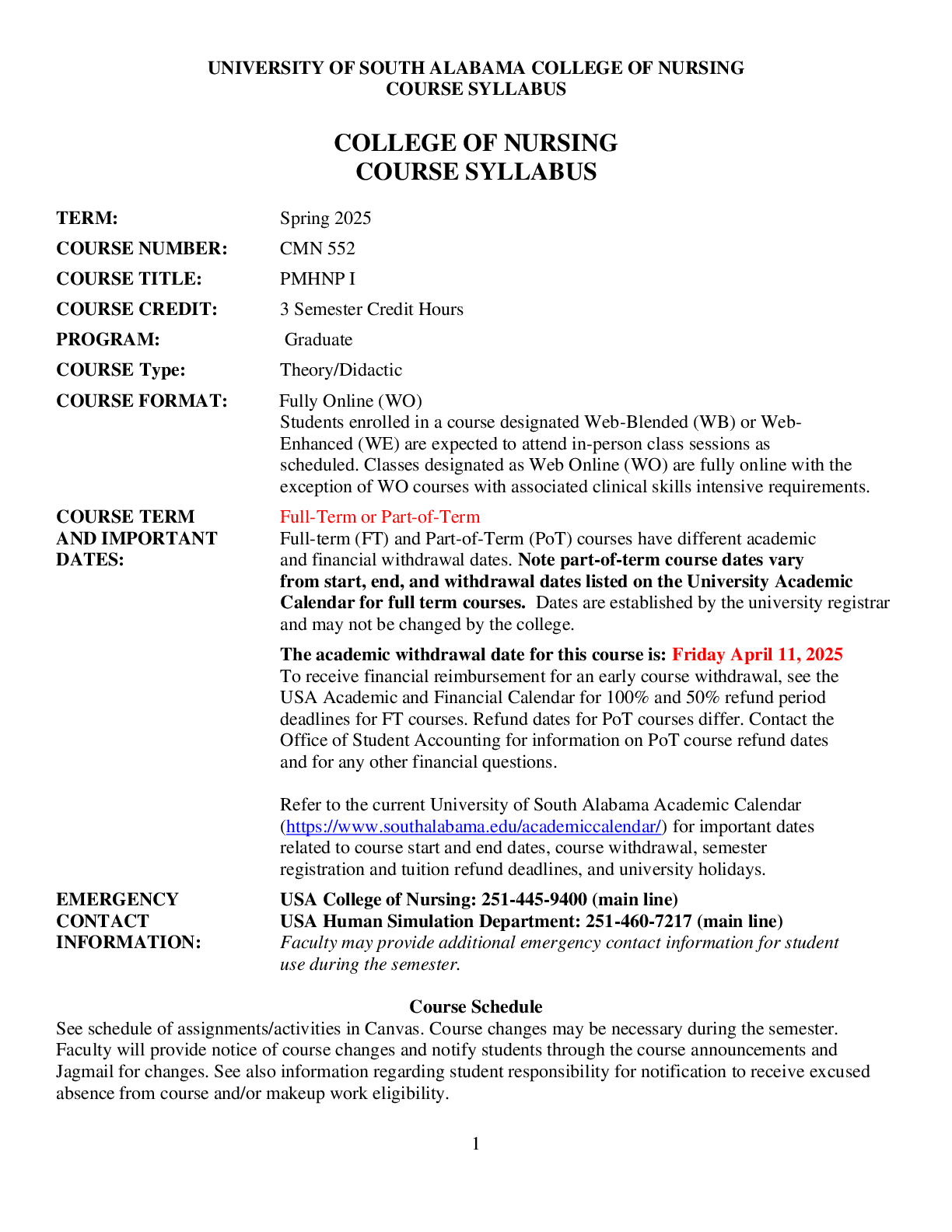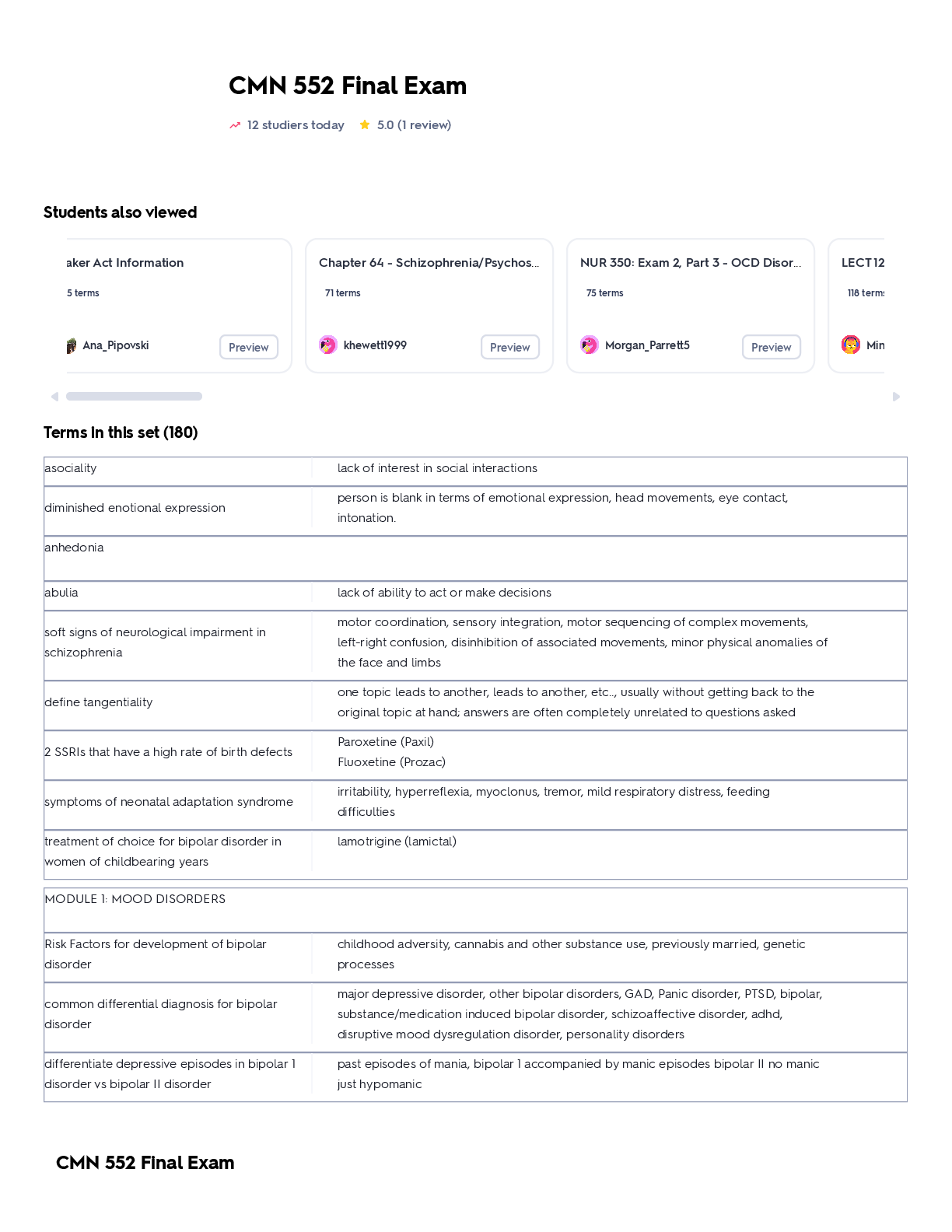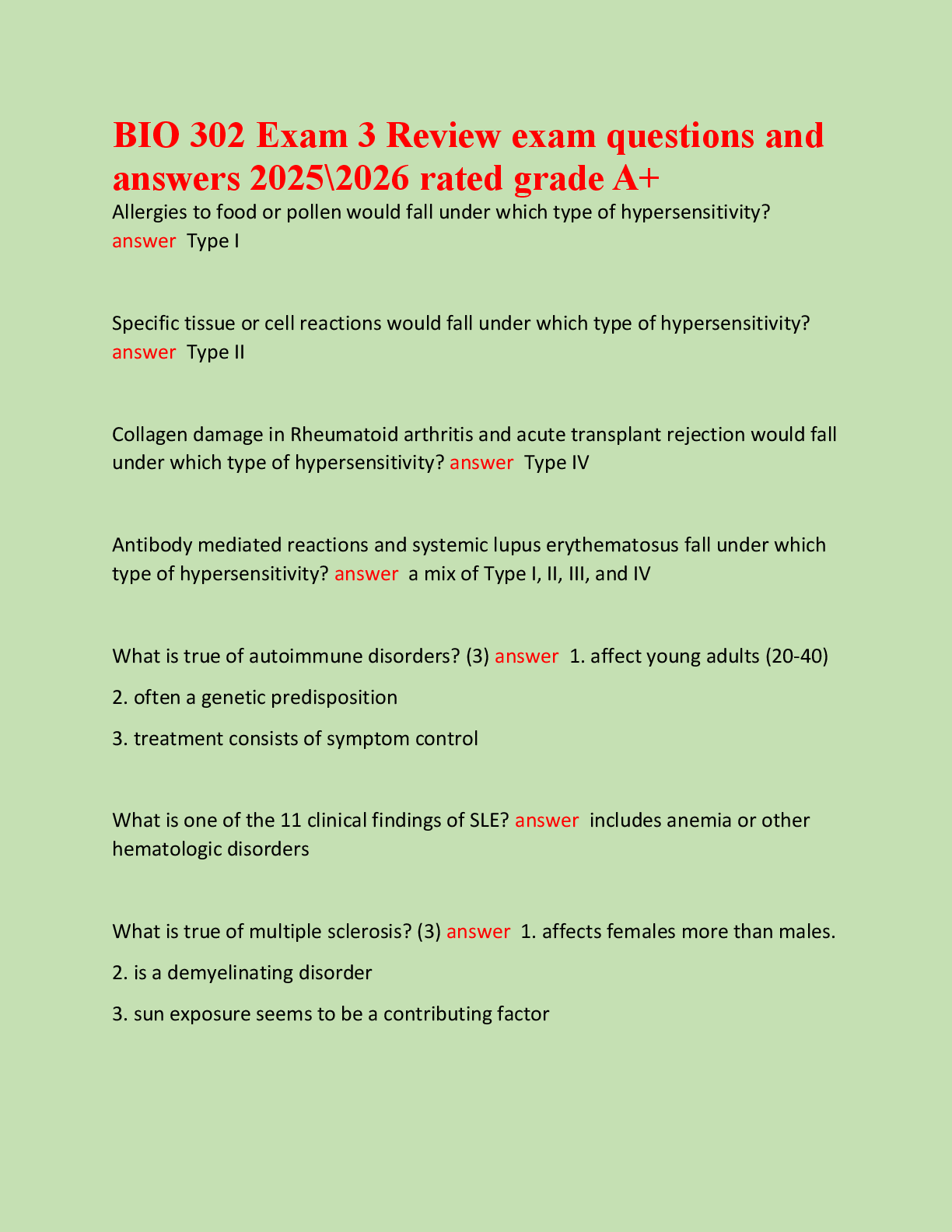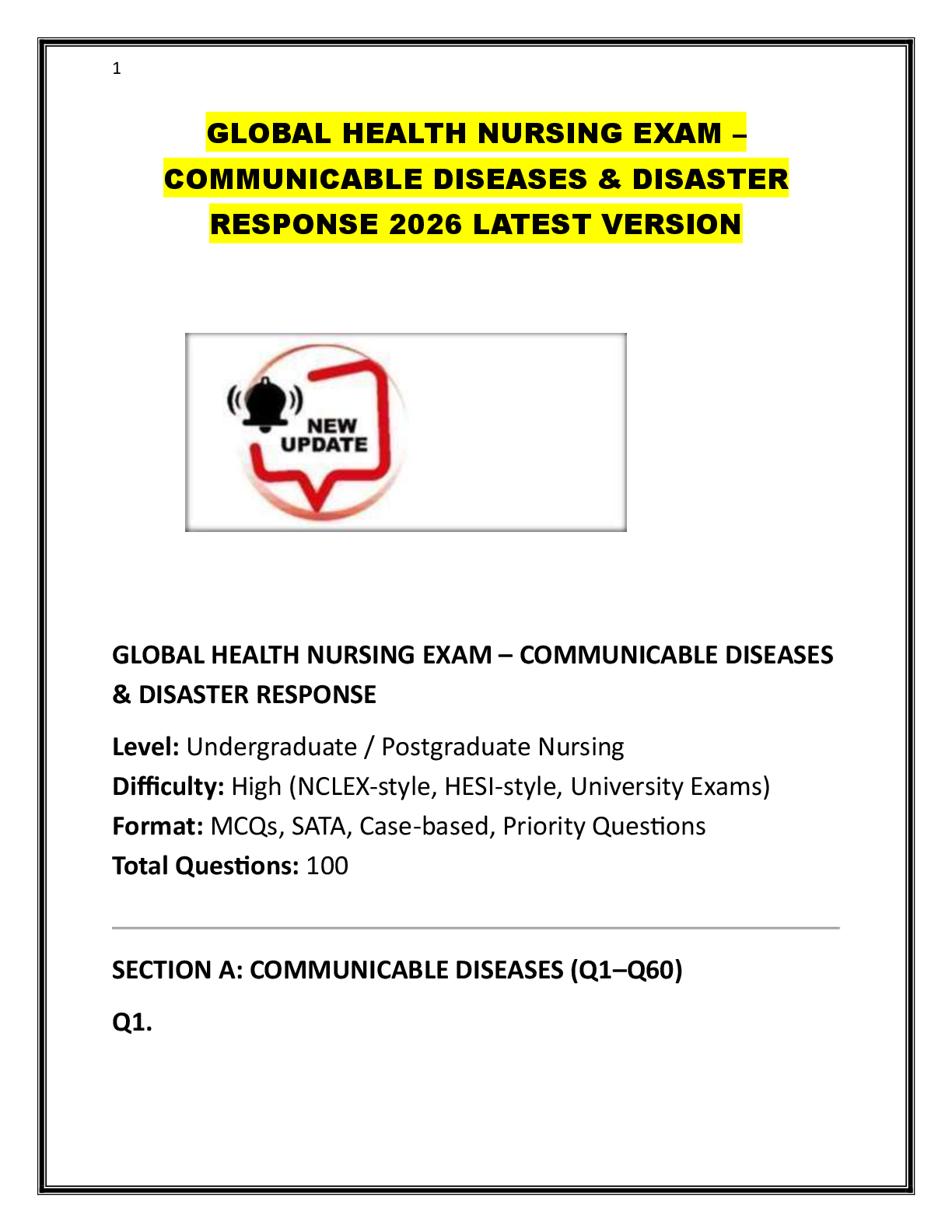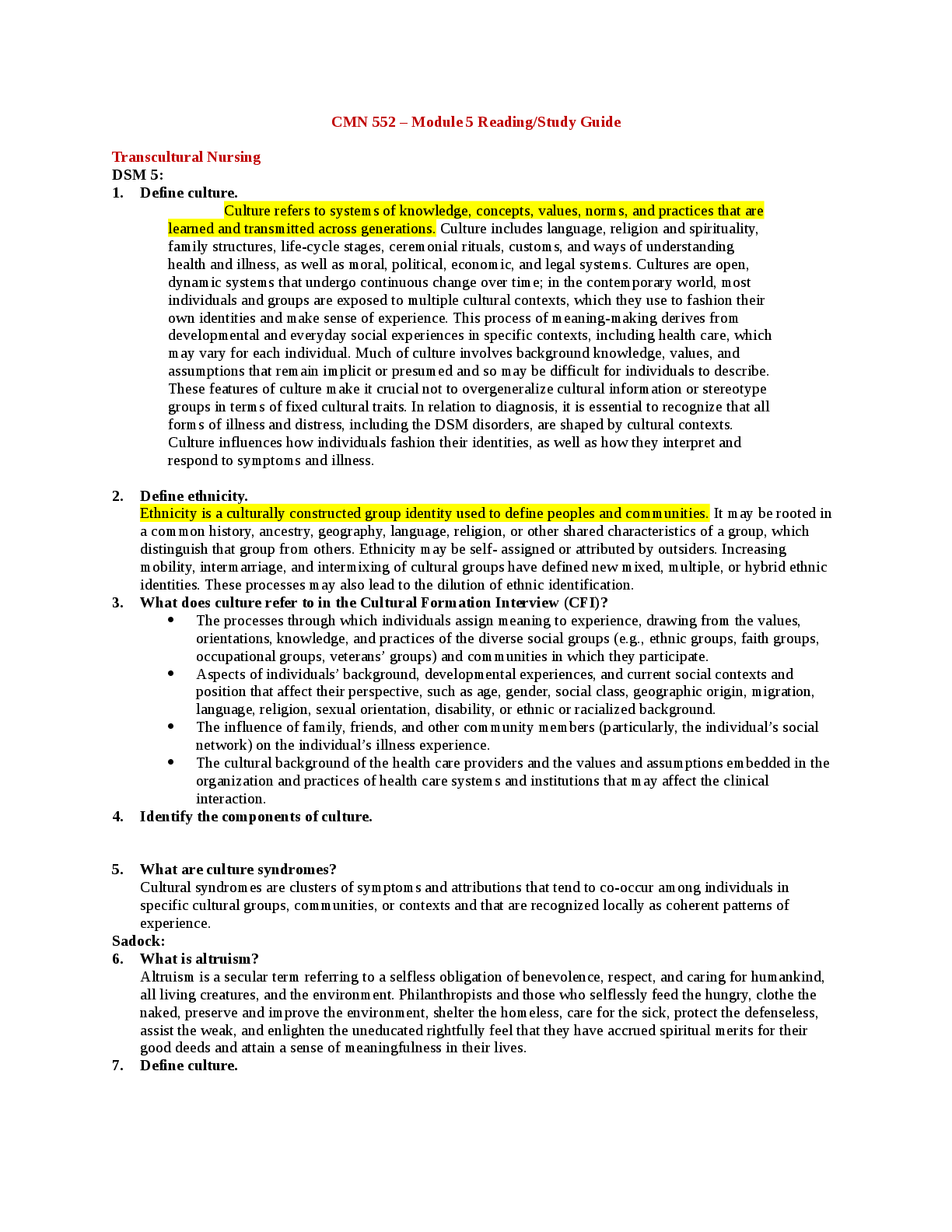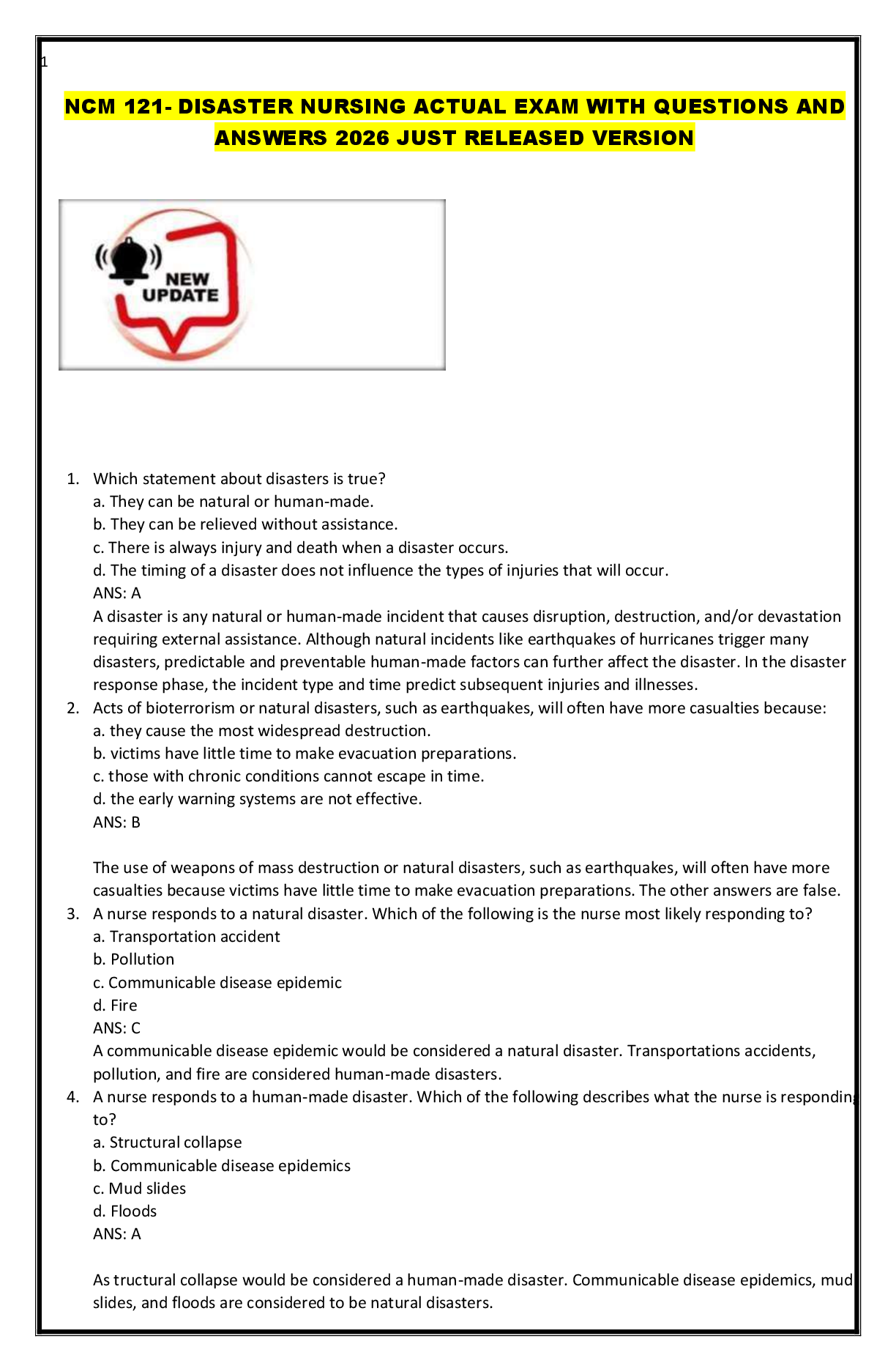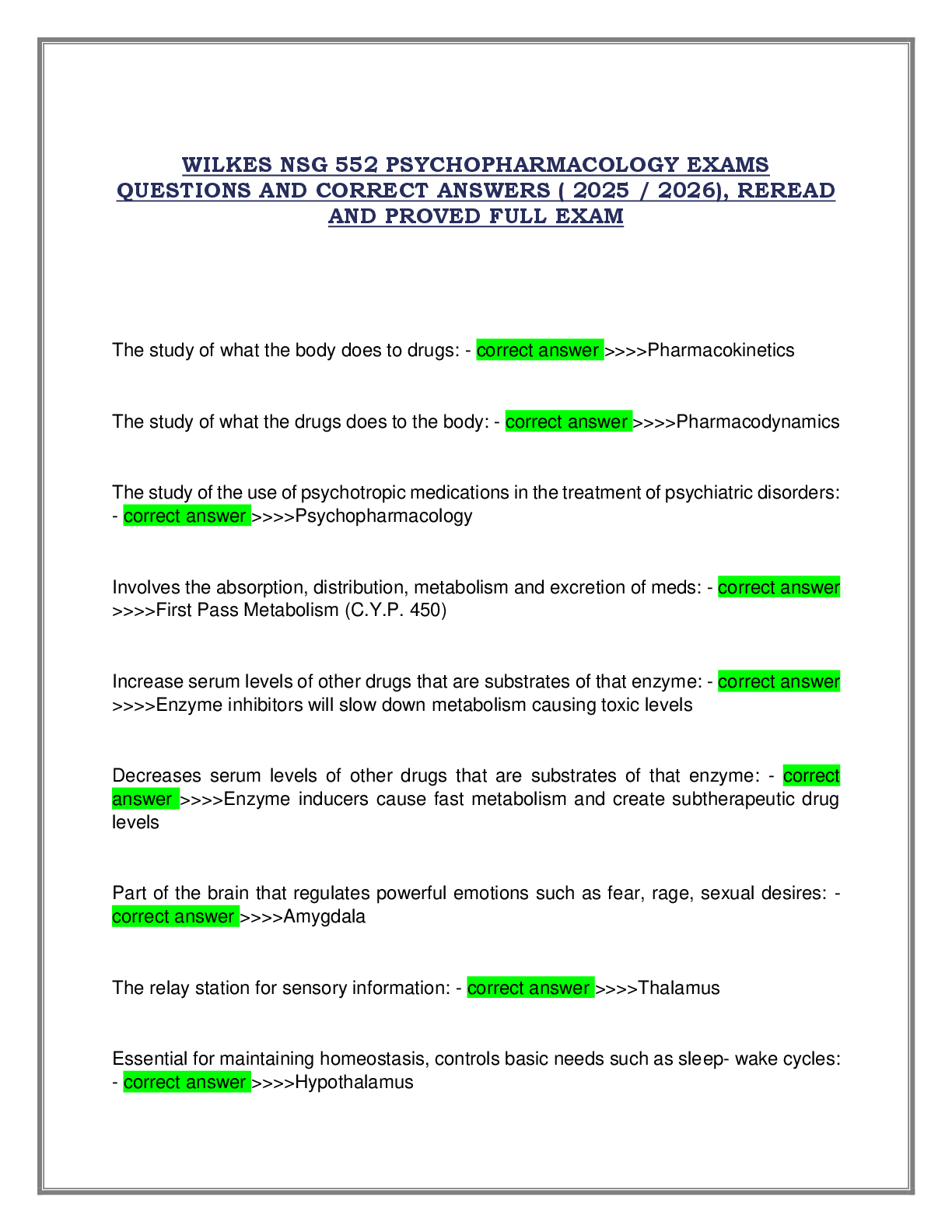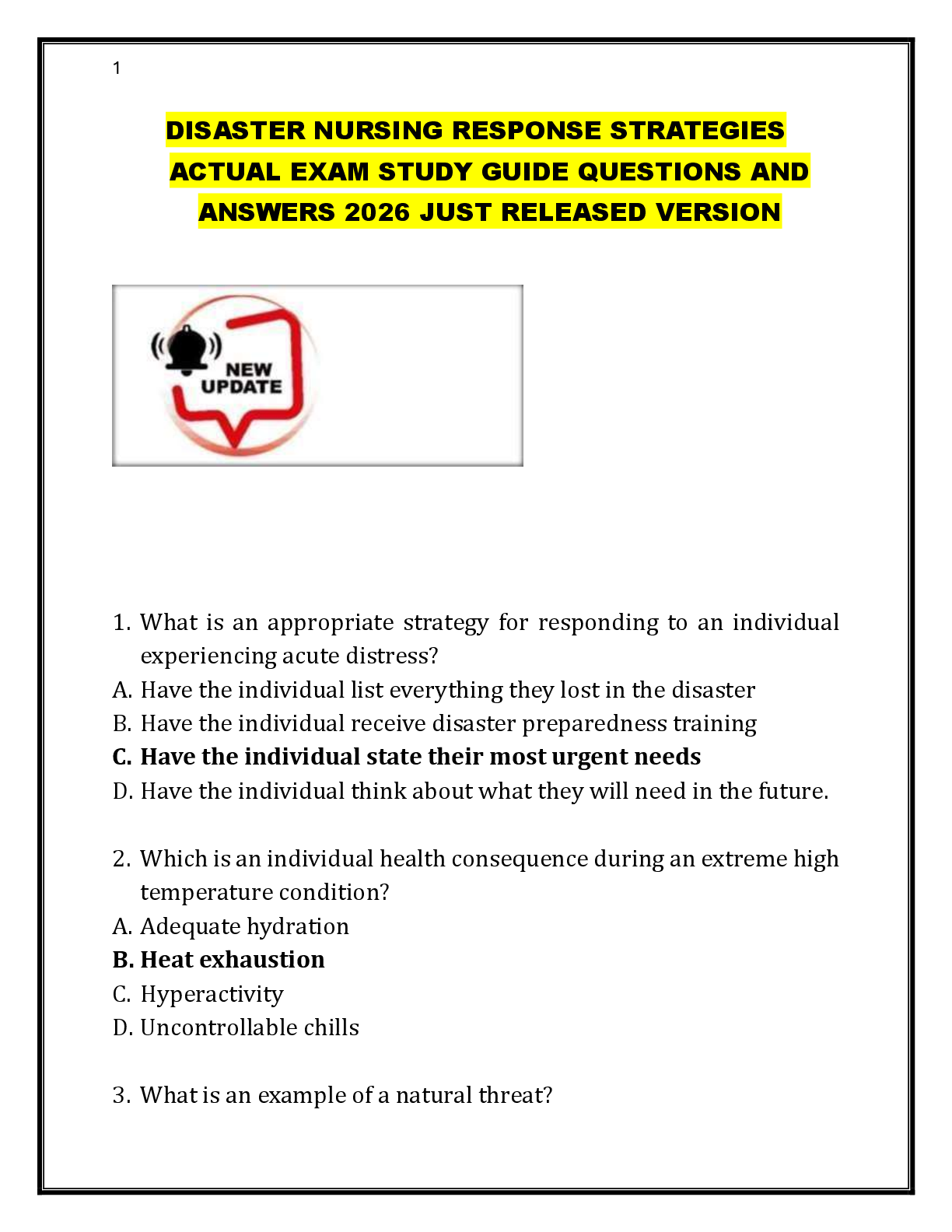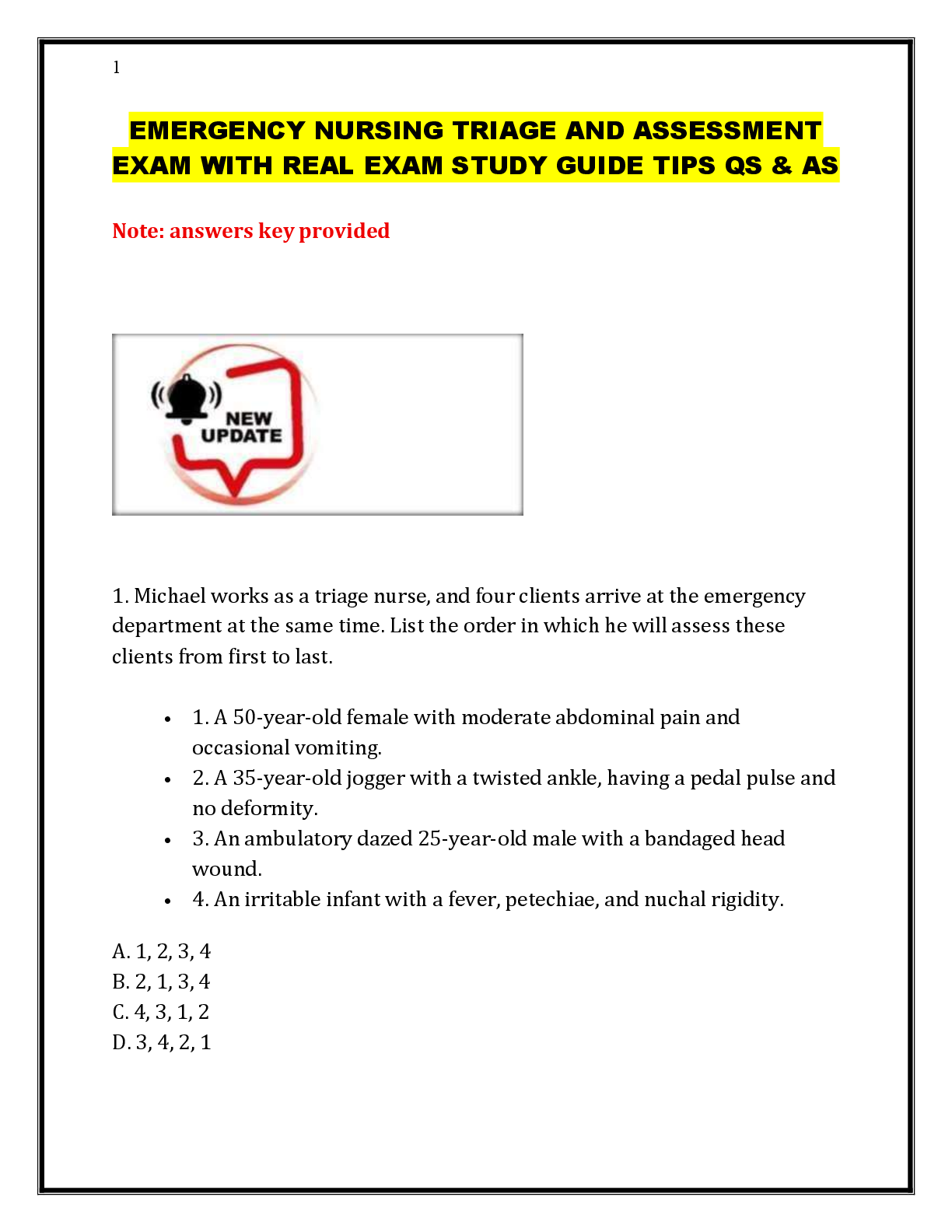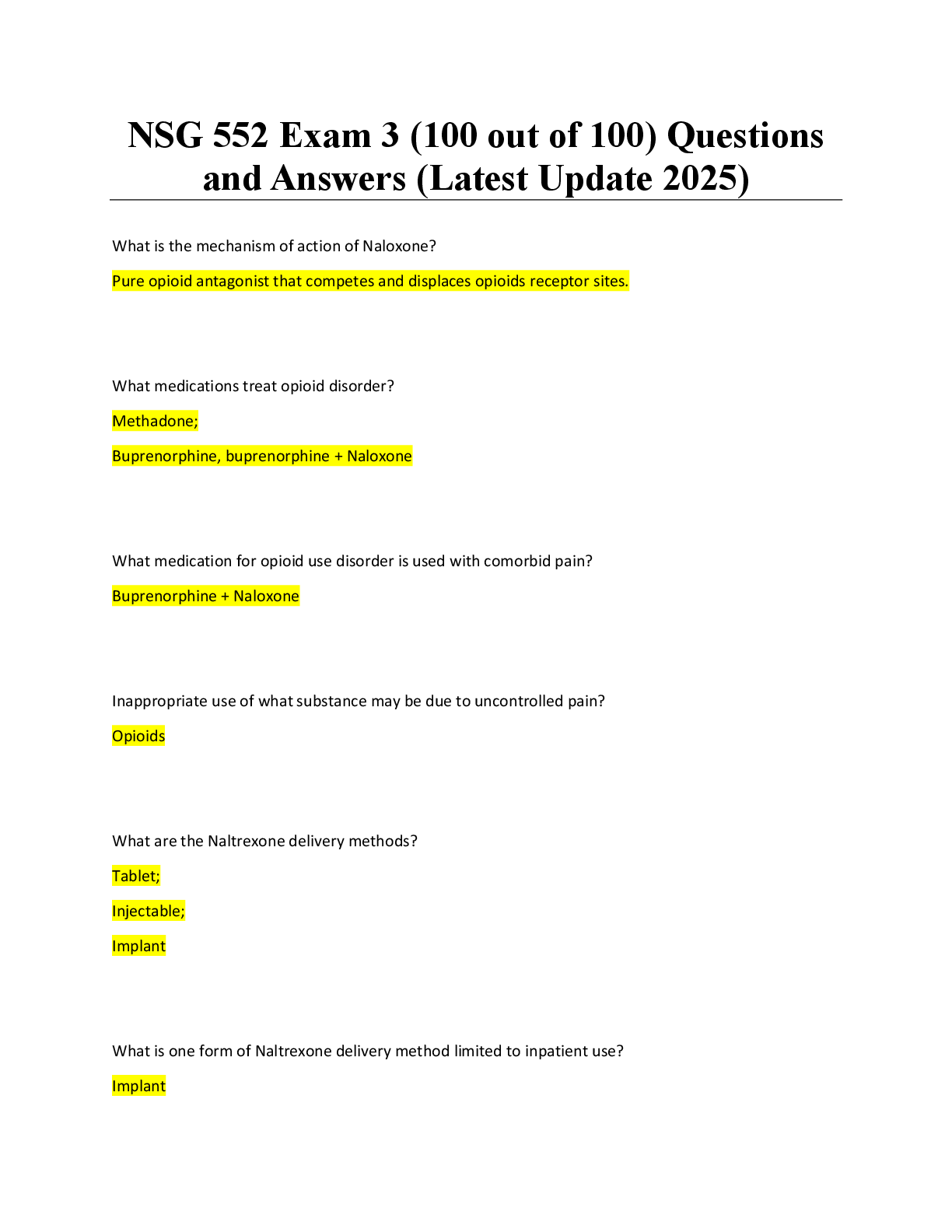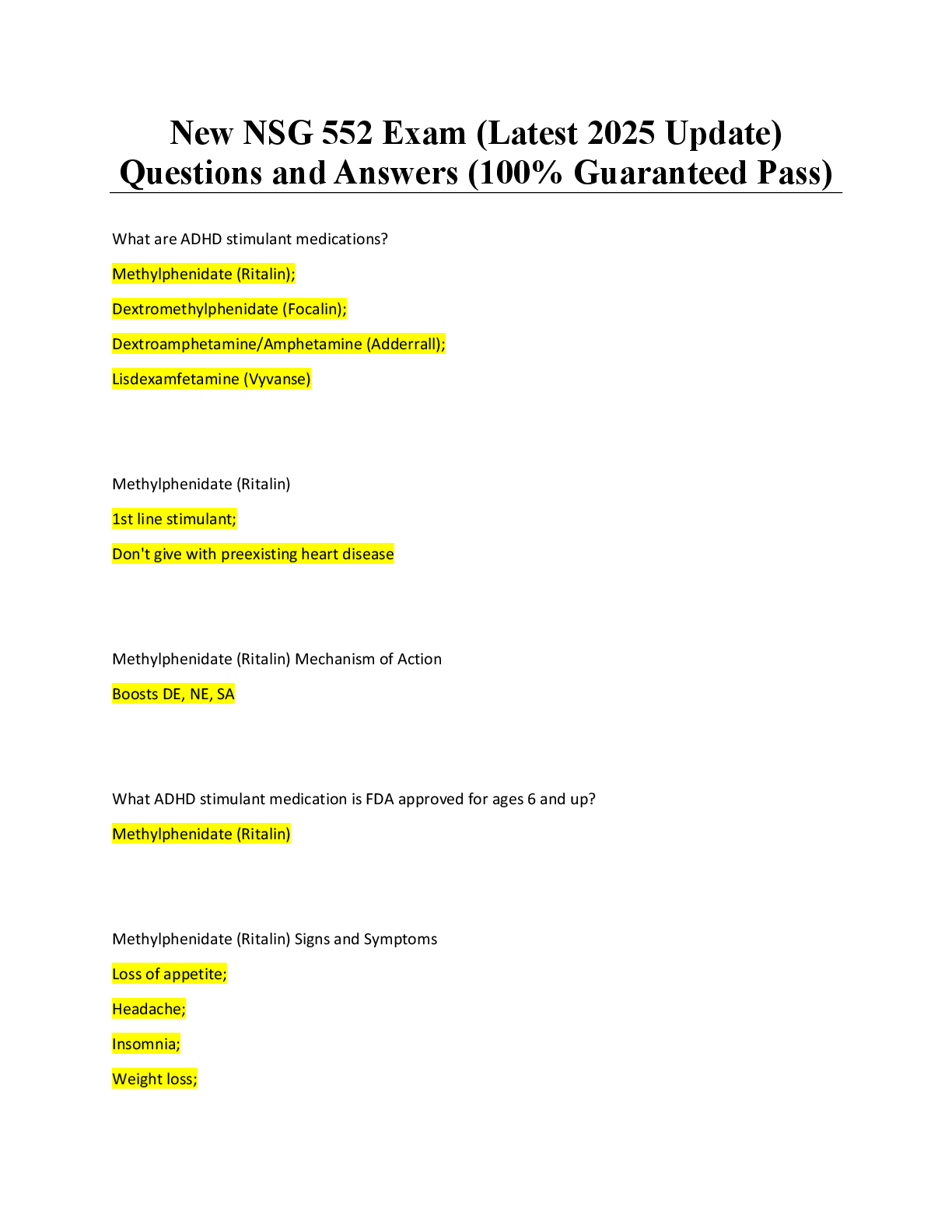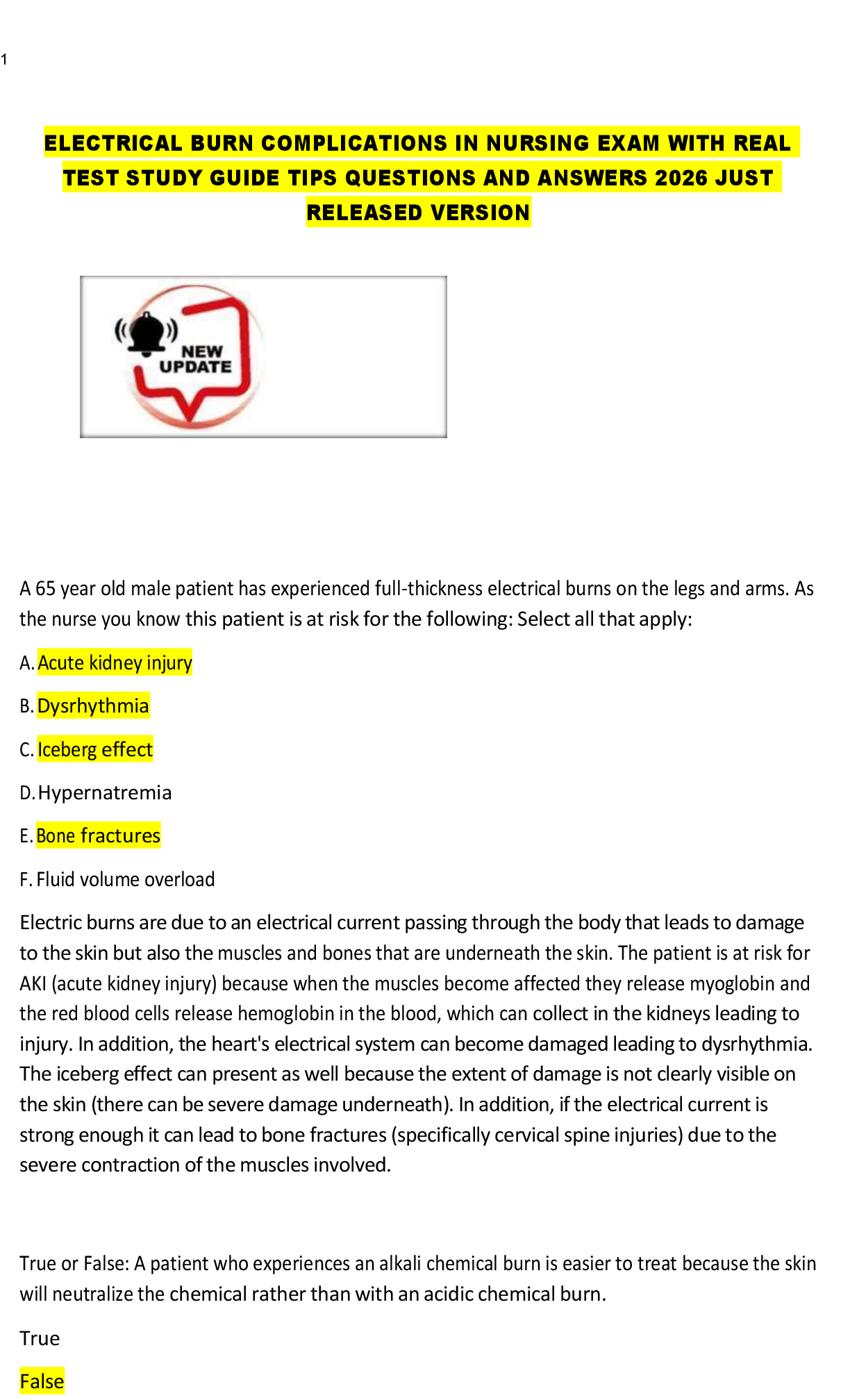ATI proctored mental health study guide.
Psychotic Disorders: Initial Plan of Care for a Client Who Has Schizophrenia (RN QSEN - Patient-centered Care, Active Learning Template - System Disorder, RM MH RN 10.0 Chp 15)
...
ATI proctored mental health study guide.
Psychotic Disorders: Initial Plan of Care for a Client Who Has Schizophrenia (RN QSEN - Patient-centered Care, Active Learning Template - System Disorder, RM MH RN 10.0 Chp 15)
• Provide a structured, safe environment (milieu) for the client to decrease anxiety and to distract the client from constant thinking about hallucinations
• Promote therapeutic communication to lower anxiety, decrease defensive patterns, and encourage participation in the milieu.
• Program of assertive community treatment (PACT): Intensive case management and interprofessional team approach to assist clients with community‑living needs.
Depressive Disorders: Priority Findings to Share with Treatment Team (RN QSEN - Teamwork and Collaboration, Active Learning Template - System Disorder, RM MH RN 10.0 Chp 13)
• Suicide risk: Assess the client’s risk for suicide and implement appropriate safety precautions.
• Self‑care: Monitor the client’s ability to perform activities of daily living and encourage independence as much as possible.
• Communication: Make observations rather than asking direct questions, which can cause anxiety in the client. For example, the nurse might say, “I noticed that you attended the unit group meeting today,” rather than asking, “Did you enjoy the group meeting
Legal and Ethical Issues: Right to Refuse Treatment (RN QSEN - Patient-centered Care, Active Learning Template - Basic Concept, RM MH RN 10.0 Chp 2)
-
-
-
-
-
-
-
-
-
-
-
Neurocognitive Disorders: Home Safety for a Client Who Has Alzheimer's Disease (RN QSEN - Safety , Active Learning Template - Basic Concept, RM MH RN 10.0 Chp 17)
• Install childproof door locks.
• Place the client’s mattress on the floor.
• install light fixtures above stairs
Medications for Bipolar Disorders: Adverse Effects of Lamotrigine (Active Learning Template - Medication, RM MH RN 10.0 Chp 23)
• Double or blurred vision
• dizziness,
• headache, nausea, vomiting
Medications for Psychotic Disorders: Adverse Effects of Thioridazine Therapy (RN QSEN - Patient-centered Care, Active Learning Template - Medication, RM MH RN 10.0 Chp 24)
• Agranulocytosis
• Pseudoparkinsonism
• Akathisia
Medications for Children and Adolescents Who Have Mental Health Issues: Evaluating Client Understanding of Methylphenidate (RN QSEN - Patient-centered Care, Active Learning Template - Medication, RM MH RN 10.0 Chp 25)
• Monitor the client’s height and weight and compare to baseline height and weight.
• Administer medication right before or after meals.
• Encourage children to eat at regular meal times and to avoid unhealthy food choices.
Medications for Substance Use Disorders: Managing Alcohol Withdrawal (RN QSEN - Safety , Active Learning Template - Medication, RM MH RN 10.0 Chp 26)
• Administer around‑the‑clock or PRN.
• Obtain baseline vital signs.
• Monitor vital signs and neurological status on an ongoing basis.
• Provide for seizure precautions.
Medications for Depressive Disorders: Clinical Findings of Serotonin Syndrome (Active Learning Template - System Disorder, RM MH RN 10.0 Chp 22)
• Mental confusion, difficulty concentrating
• Abdominal pain
• Diarrhea
• Agitation
• Fever
• Anxiety●Hallucinations●Hyperreflexia, incoordination●Diaphoresis●Tremor
[Show More]
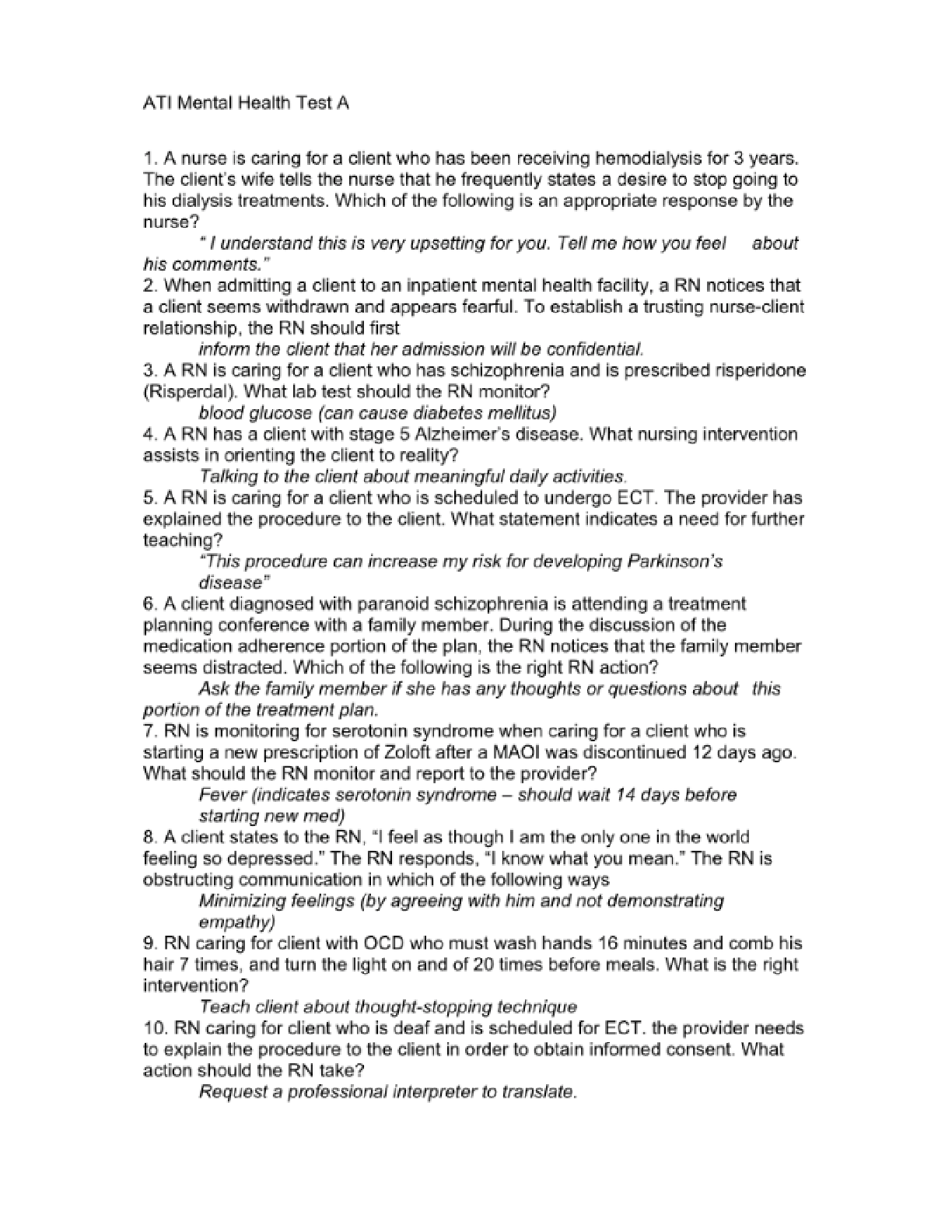






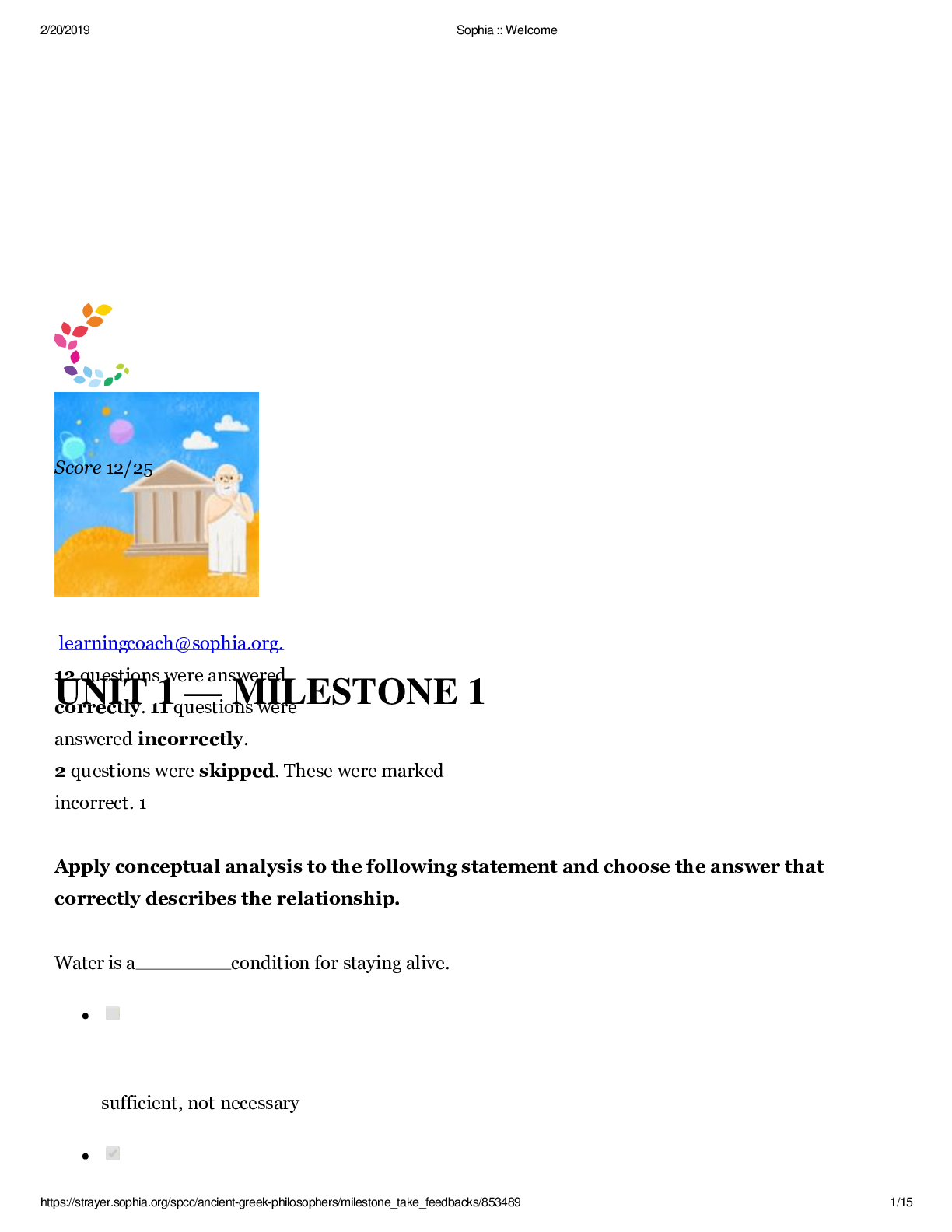


 – University of the People.png)
